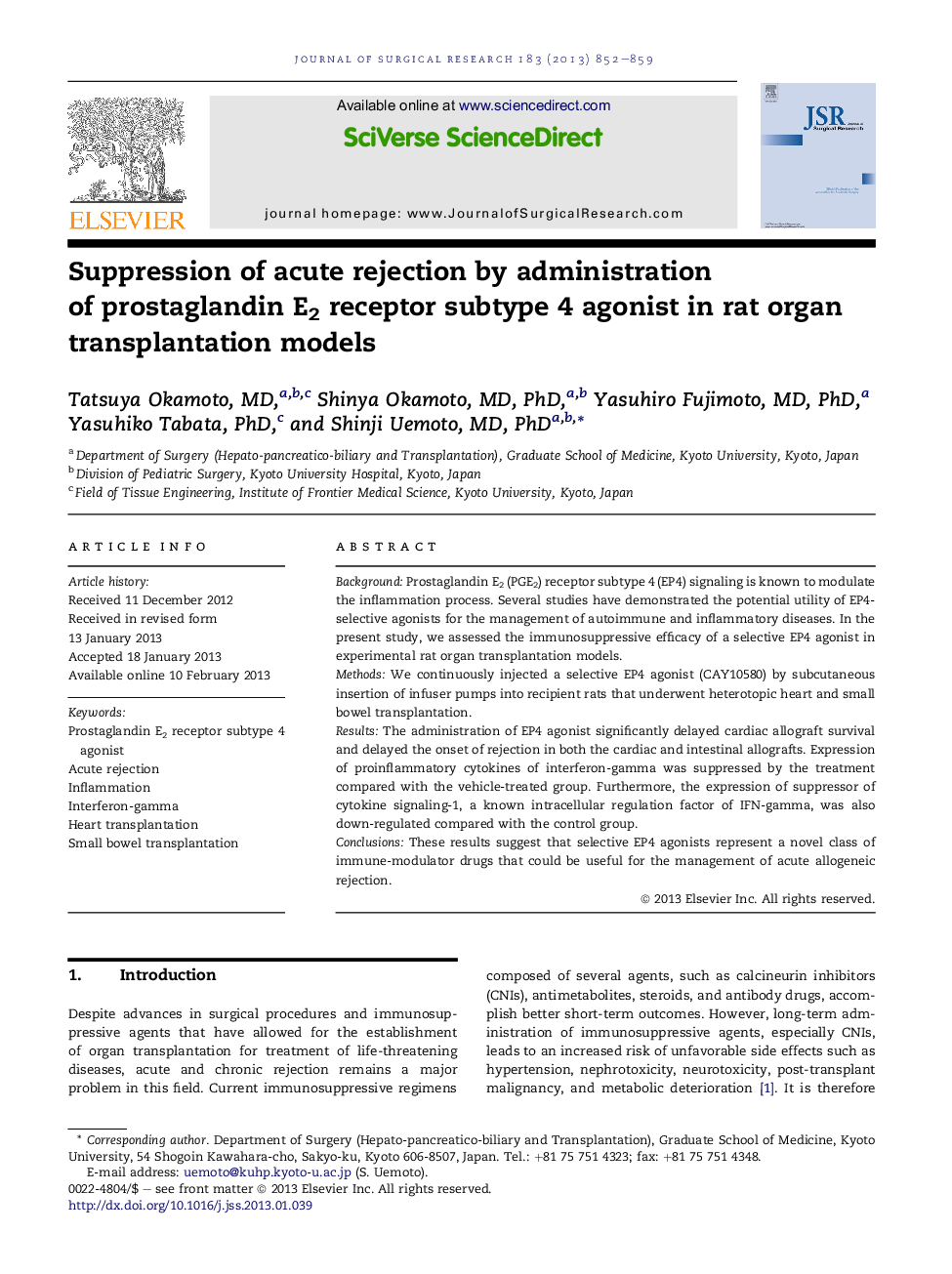| Article ID | Journal | Published Year | Pages | File Type |
|---|---|---|---|---|
| 4300902 | Journal of Surgical Research | 2013 | 8 Pages |
BackgroundProstaglandin E2 (PGE2) receptor subtype 4 (EP4) signaling is known to modulate the inflammation process. Several studies have demonstrated the potential utility of EP4-selective agonists for the management of autoimmune and inflammatory diseases. In the present study, we assessed the immunosuppressive efficacy of a selective EP4 agonist in experimental rat organ transplantation models.MethodsWe continuously injected a selective EP4 agonist (CAY10580) by subcutaneous insertion of infuser pumps into recipient rats that underwent heterotopic heart and small bowel transplantation.ResultsThe administration of EP4 agonist significantly delayed cardiac allograft survival and delayed the onset of rejection in both the cardiac and intestinal allografts. Expression of proinflammatory cytokines of interferon-gamma was suppressed by the treatment compared with the vehicle-treated group. Furthermore, the expression of suppressor of cytokine signaling-1, a known intracellular regulation factor of IFN-gamma, was also down-regulated compared with the control group.ConclusionsThese results suggest that selective EP4 agonists represent a novel class of immune-modulator drugs that could be useful for the management of acute allogeneic rejection.
